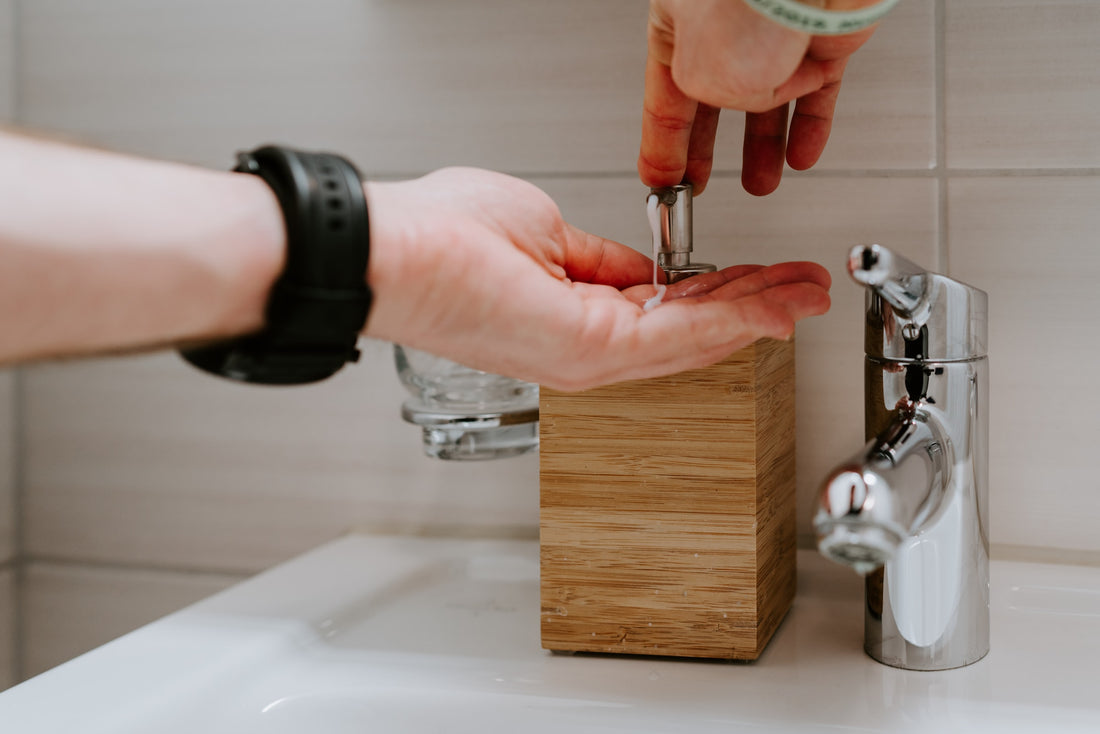Washing our hands has become our first line of defence against COVID-19. Today, we often hear about the importance of washing our hands to help minimise the spread of infection. It’s no wonder that antibacterial hand wash and similar products have become top sellers around the world.
However, do antibacterial hand wash and soaps truly offer extra protection against germs? Or is regular soap and water sufficient for our daily needs, even with the pandemic?
What is an Antibacterial Hand Wash?
Antibacterial hand washes are liquid soaps that contain antibacterial ingredients, allowing them to purportedly kill a wider range of bacteria and other microorganisms. Antibacterial hand wash may also be referred to as antimicrobial or antiseptic soaps.
Why is Antibacterial Hand Wash Useful?
Advertisements love to praise how antibacterial hand wash successfully kills “99.9%” of bacteria—and many people believe them.
Washing our hands regularly using plain hand wash and water is already a sufficient way to reduce infection risk and boost our defences against virus transmissions. Using antibacterial hand wash, which is said to have greater effectivity, allegedly helps improve these benefits.
What are the Downsides?
Many among the public believe that antibacterial soaps, hand wash, and hand wash tablets can better protect our health and prevent the spread of illness. However, there was never any definitive data demonstrating or proving that antibacterial soaps really provide additional protection against diseases and infections. Recent studies now suggest otherwise.
Higher Antibiotic Resistance
One of the most common active antibacterial agents in such liquid soaps is triclosan. It has been a popular component of many antibacterial products since the 1960s. However, researchers have raised the possibility that triclosan may contribute to higher antibiotic resistance.
When bacteria grows stronger or more resistant against the effects of antibiotics, it can cause less effective drugs and treatments. As such, this can significantly impact the healthcare industry and our overall health and safety.
Findings also show that triclosan may be harmful to our environment. Since it is a common liquid soap ingredient, triclosan has been found in wastewaters and the surrounding environment. Researchers note that this can be harmful or toxic to some marine life forms.
High Effectiveness of Regular Soap
A study published in the Journal of Antimicrobial Chemotherapy and reported in the BMJ indicated that antibacterial soap is not more effective at lowering bacterial contamination compared to plain soap and water.
Meanwhile, a 2011 study showed that washing our hands with plain soap and water can effectively reduce bacteria presence from 44% to 8%. This negates the widespread belief that antibacterial hand wash is necessary to kill bacteria and keep us safe.
Skin Issues
Lastly, overusing antibacterial soaps, hand wash tablets, and other such products also kills off healthy, beneficial bacteria on our skin. These “friendly” bacteria are necessary to maintain our skin microbiota and contribute to our skin’s natural defences.
Moreover, the chemicals used in antibacterial hand wash tablets and soaps can effectively strip our skin of its natural oils. This may lead to dry skin. Without this added layer of protection, our skin may face more potential skin issues.
Where Do We Stand
Despite all ads regarding its 99.9% effectiveness, there are no conclusive findings proving these claims. As such, antimicrobial or antibacterial soaps can give people a false sense of security. This can lead to people neglecting hand washing techniques.
Washing our hands with plain soap, handwash, hand wash tablets, and water remains one of the most important steps we can take to avoid the spread of viruses and other diseases.
Rather than buying expensive antibacterial hand wash and soaps, it is better to purchase environmentally friendly hand wash tablets and use proper hand washing techniques.
Sources:
https://health.clevelandclinic.org/avoid-germs-dont-bother-anti-bacterial-soaps-video/
https://www.consumer.org.nz/articles/antibacterial-soaps
https://dermnetnz.org/topics/antibacterial-soap
https://www.verywellhealth.com/the-problem-with-antibacterial-soap-4125914
https://www.bmj.com/content/351/bmj.h4944
https://www.ncbi.nlm.nih.gov/pmc/articles/PMC3037063/
https://www.unitypoint.org/blankchildrens/article.aspx?id=68ac1797-834f-409c-947b-4df322b04380
https://ecostore.com/nz/blog/does-soap-need-to-be-antibacterial-to-kill-a-virus/
https://medplus.co.nz/news/entry/antibacterial-soap-not-clean-it-should-be/
https://www.health.state.mn.us/people/handhygiene/how/bestsoap.html
https://pubmed.ncbi.nlm.nih.gov/18616390/
Photo by Claudio Schwarz on Unsplash
